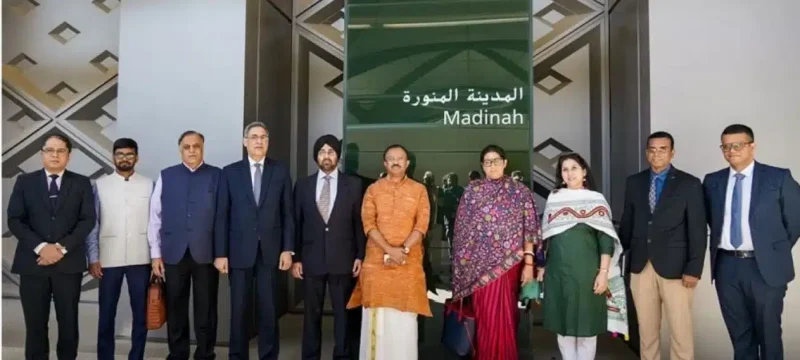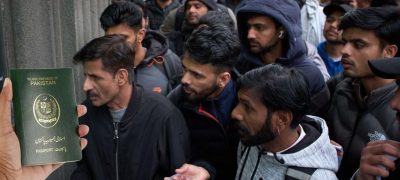India’s Minister Smriti Irani, leading a government delegation, undertook an unprecedented diplomatic mission to the revered city of Madina Munawara in Saudi Arabia. This distinctive visit included prominent Islamic landmarks such as Masjid Nabawi, Uhud Mountain, and Masjid Quba. Notably, the visit broke the tradition of restricting non-Muslim dignitaries from entering Makkah and certain sections of Medina.
The Bharatiya Janata Party (BJP) orchestrated this official two-day visit, marking a historic occasion where non-Muslims were granted access to the holy city. Minister Smriti Irani, accompanied by V Muraleedharan, India’s Minister of State for External Affairs, led the delegation. The Saudi authorities granted special permission for this exceptional visit.
Read more : SanaKhan Meets Maulana Tariq Jamil in Madina Munawwarah
Adding a unique dimension to the delegation were two women, including Nirupama Kotru, a Kashmiri Pandit IRS officer. Their presence, dressed in saris and Shalvar-Kameez without head coverings, emphasized the extraordinary nature of their participation in this traditionally conservative setting.
This visit holds historical significance as it allows non-Muslim dignitaries to explore and pay respects to crucial Islamic sites. Irani emphasized the depth of cultural and spiritual engagement during her visit, which covered Al Masjid Al Nabwi, the mountain of Uhud, and the Quba Mosque—the first mosque established by the Holy Prophet Muhammad (SAW). The visit is anticipated to offer insights into the logistical requirements for the upcoming Haj pilgrimage, and it facilitated the signing of a Bilateral Haj Agreement for 2024 between India and Saudi Arabia.
Beyond religious and cultural exchanges, the visit encompassed discussions with Saudi and Indian business professionals to explore investment opportunities and strengthen economic ties. This aligns with India’s broader strategy of deepening relationships and expanding trade in the Middle East, particularly with Saudi Arabia.
This diplomatic mission signifies a groundbreaking engagement between non-Muslim dignitaries and the holy city of Madina Munawara. It not only reflects the deepening ties between India and Saudi Arabia in terms of religious and cultural understanding but also underscores the economic cooperation and trade relations between the two nations. The visit serves as a noteworthy chapter in India’s evolving foreign policy in the Middle East.









